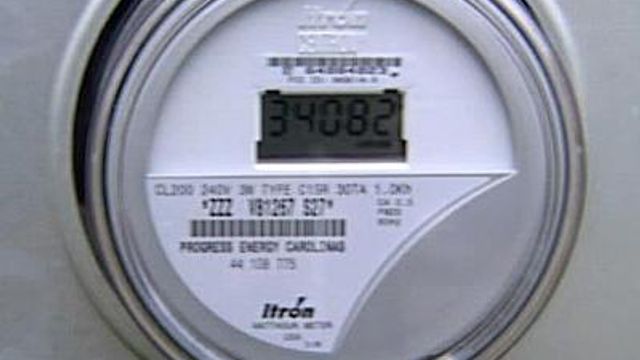Local News
Power bills could soar under Obama's energy plan
Federal legislation that has already passed the House will likely affect how much more customers pay on their energy bills. The question is, how much?
Posted — UpdatedRALEIGH, N.C. — Imagine your power bill going up by $200 a month.
Progress Energy spokesman Mike Hughes said Thursday that based on what he's been hearing in congressional debates, it's a possibility under President Barack Obama's energy plan, which narrowly passed the U.S. House of Representatives last week.
The bill, which Obama has said will reduce the nation's dependence on foreign oil and clean the air, calls for a reduction of carbon emissions by 17 percent by 2020, and for 20 percent of the nation's energy to be renewable – such as wind and solar – by 2020.
The bill also includes a consumer protection to keep down energy prices. But Hughes said he is not sure how it will add up.
"If there are fundamental changes to national policy, particularly as it pertains to electricity, then the cost is going up," he said.
Hughes said that because there is no proven technology to meet the proposed federal standards, it's unclear how high rates might go. Based on congressional debate, Hughes said it could be drastic.
"There were estimates from a few pennies or a few dollars a month, and estimates I heard all the way to $4,000 a year for a typical household," Hughes said. "It's probably somewhere in the middle."
Because the bill is still being written, Hughes said, there are few factors that are fully known and that Progress Energy does not have a specific estimate of the cost of integrating renewable energy into its services and offerings.
"One thing we know for sure is that major changes to laws that affect coal-fueled power plants will raise the price of electricity, because half of the electricity we generate for customers comes from coal plants," he said.
PSNC predicts that the bill, in its current form, could potentially cause rates to go up by 5 to 15 percent by 2016.
The U.S. House approved Obama's plan Friday in a 219-212 vote.
Republicans were overwhelmingly against the measure, arguing it would destroy jobs in the middle of a recession, while burdening customers with a new tax in the form of higher energy costs.
The U.S. Senate could take up the legislation as early as September, and a major struggle is expected. The bill's supporters would need 60 votes to overcome any Republican filibuster.
The White House has said it is confident that the Senate will pass comprehensive energy legislation.
The president has called the move a "bold and necessary step" and said that the bill holds promise for creating new industries and millions of new jobs as the nation shifts to greater reliance on renewable energy sources and away from use of fossil fuels such as oil, gas and coal.
"The bill is a first step toward solving global warming and putting our economy back on track with clean energy, like wind and solar (power)," said Margaret Hartzell, an advocate with Environment North Carolina.
Hartzell said that a recent nonpartisan Congressional Budget Office analysis estimates the cost of the president's plan to homeowners would, on average, be approximately $175 to $180 a year after tax credits and rebates were taken into account.
"In 2020, the cap and trade program will cost the average family $15 a month," Hartzell said. "That's 48 cents a day, so a little bit more than the cost of a postage stamp."
A report from the Environmental Protection Agency estimates the cost at about $80 to $110 a year.
But Republicans have questioned the validity of the CBO study and noted that even that analysis showed actual energy production costs increasing $770 per household.
Industry groups have cited other studies showing much higher costs to the economy and to individuals.
• Credits
Copyright 2024 by WRAL.com and the Associated Press. All rights reserved. This material may not be published, broadcast, rewritten or redistributed.





